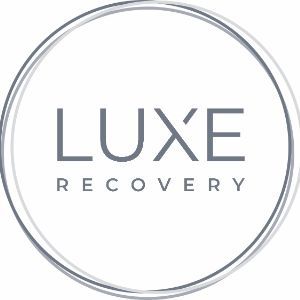





Founded
Occupancy
Accreditation
Who We Treat
Specializations
Levels of Care
About Luxe Recovery
Overlooking the Los Angeles city lights, they offer unlimited 1:1 therapy to provide comprehensive and evidence-based treatment for addiction and mental health.
Accepted Insurances
Treatment
Levels of Care
Detox
Detox fully and safely removes toxic substances from the body, allowing the next steps in treatment to begin with a clean slate.
Residential
In a residential rehab program, patients live onsite, with access to daily treatment and 24-hour care. An average stay is 30-90 days.
Methods
Evidence-Based
A combination of scientifically rooted therapies and treatments make up evidence-based care, defined by their measured and proven results.
Holistic
A non-medicinal, wellness-focused approach that aims to align the mind, body, and spirit for deep and lasting healing.
Individual Treatment
Individual care meets the needs of each patient, using personalized treatment to provide them the most relevant care and greatest chance of success.
1-on-1 Counseling
Patient and therapist meet 1-on-1 to work through difficult emotions and behavioral challenges in a personal, private setting.
Art Therapy
Visual art invites patients to examine the emotions within their work, focusing on the process of creativity and its gentle therapeutic power.
Eye Movement Therapy (EMDR)
Lateral, guided eye movements help reduce the emotional reactions of retelling and reprocessing trauma, allowing intense feelings to dissipate.
Life Skills
Teaching life skills like cooking, cleaning, clear communication, and even basic math provides a strong foundation for continued recovery.
Medication-Assisted Treatment
Combined with behavioral therapy, prescribed medications can enhance treatment by relieving withdrawal symptoms and focus patients on their recovery.
Motivational Interviewing and Enhancement Therapy (MET)
This approach is based on idea that motivation to change comes from within. Providers use a conversational framework that may help you commit to recovery.
Psychoeducation
This method combines treatment with education, teaching patients about different paths toward recovery. This empowers them to make more effective decisions.
Relapse Prevention Counseling
Relapse prevention counselors teach patients to recognize the signs of relapse and reduce their risk.
Somatic Experiencing
This method treats emotional trauma stored in the body. A therapist helps patients work through the physical feelings associated with emotional pain.
Acceptance and Commitment Therapy (ACT)
This cognitive behavioral therapy teaches patients to accept challenging feelings and make the appropriate changes to reach personal goals.
Group Therapy
Two or more people meet with a therapist together. Patients get valuable peer support, strengthen interpersonal skills, and improve self-awareness.
Personalized Treatment
The specific needs, histories, and conditions of individual patients receive personalized, highly relevant care throughout their recovery journey.
Adventure Therapy
This experiential approach uses the physical and emotional challenges of outdoor activities as tools for personal growth.
Dance Therapy
This experiential therapy uses dance to improve body awareness, physical health, and social skills.
Family Therapy
Family therapy addresses group dynamics within a family system, with a focus on improving communication and interrupting unhealthy relationship patterns.
Hypnotherapy
A hypnotherapist guides patients through a trance-like state. This helps them identify and process subconscious emotions and regain inner control.
Music Therapy
Singing, performing, and even listening to music can be therapeutic. Music therapy sessions are facilitated by certified counselors.
Narrative Therapy
Through narrative therapy, patients rewrite past events with a positive focus. They separate themselves from the problem to see their purpose and capabilities.
Recreation Therapy
In recreation therapy, recovery can be joyful. Patients practice social skills and work through emotional triggers by engaging in fun activities.
Relaxation Therapy
Muscle relaxation techniques relax mind and body. They can easily be practiced outside treatment, making it a valuable coping tool for continued recovery.
Spiritual Care
Tending to spiritual health helps treatment become more effective, allowing patients to better cope with their emotions and rebuild their spiritual wellbeing.
Twelve Step Facilitation
12-Step groups offer a framework for addiction recovery. Members commit to a higher power, recognize their issues, and support each other in the healing process.
Conditions We Treat
Personality Disorders
These disorders affect an individual's way of thinking, feeling, and behaving, often leading to strained relationships and significant emotional distress.
ADHD, ADD
ADHD, characterized by inattention, hyperactivity, and impulsivity, stems from dopamine irregularities and is a common mental health condition.
Alcohol
Dependence on alcohol for coping or excessive drinking indicates a disorder that can have serious health and social implications.
Anxiety
Anxiety disorders involve excessive worry and physical symptoms such as tension and elevated blood pressure, often interfering with daily life.
Benzodiazepines
Used for treating anxiety and sleep problems, benzodiazepines can be highly addictive, leading to mood swings and impaired judgement when abused.
Bipolar
Bipolar disorder features intense mood swings from highs (mania) to lows (depression), impacting one's ability to function normally.
Co-Occurring Disorders
When someone has both a mental health disorder and substance abuse issue, it is known as a dual diagnosis or co-occurring disorder.
Cocaine
Cocaine is a powerful stimulant that creates euphoria but can lead to severe health issues like heart problems and psychosis with prolonged use.
Codependency
This behavioral condition involves excessive emotional or psychological reliance on a partner, often seen in relationships involving addiction.
Drug Addiction
Substance addiction involves compulsive drug use despite adverse consequences, negatively affecting health, relationships, and daily life.
Ecstasy
Ecstasy, known for inducing intense euphoria and sensory enhancement, can lead to significant issues like insomnia and cognitive impairments when abused.
Heroin
Heroin, an illicit opioid, is highly addictive and can cause severe health issues such as heart problems, insomnia, and collapsed veins.
Methamphetamine
Methamphetamine increases energy and alertness but can cause severe mental and physical health issues, including paranoia and agitation, with long-term use.
Opioids
Opioids, which include prescription painkillers and heroin, can lead to addiction due to their pain-relieving and euphoric effects.
Prescription Drugs
Misuse of prescribed medications, driven by cravings or overuse, can lead to addiction, necessitating professional intervention.
Post Traumatic Stress Disorder
PTSD arises from traumatic events, causing symptoms like flashbacks, anxiety, and intrusive thoughts that can persist long after the event.
Synthetic Drugs
Lab-made drugs, unlike natural ones, include stimulants and synthetic cannabinoids, which can have unpredictable and dangerous effects.
Anger
While anger itself is not a disorder, it can become problematic if it disrupts relationships and daily activities, making management strategies essential.
Burnout
Burnout is characterized by extreme exhaustion and lack of fulfillment, often resulting from prolonged work-related stress and overcommitment.
Chronic Pain Management
Ongoing physical pain can lead to mental health issues and affect daily life, highlighting the need for effective management strategies.
Chronic Relapse
Repeated relapse after periods of recovery from addiction is a chronic condition that requires ongoing treatment and support.
Obsessive Compulsive Disorder
OCD involves persistent, unwanted thoughts and repetitive behaviors, disrupting daily life and requiring targeted treatment to manage.
Smoking Cessation
Quitting smoking involves stopping the use of nicotine and tobacco products, which significantly benefits overall health and well-being.
Stress
While stress can help you adapt to challenges, chronic stress can lead to serious physical and mental health problems that require intervention.
Depression
Depression ranges from mild to severe, causing feelings of fatigue, numbness, and disinterest in daily activities, impacting overall well-being.
